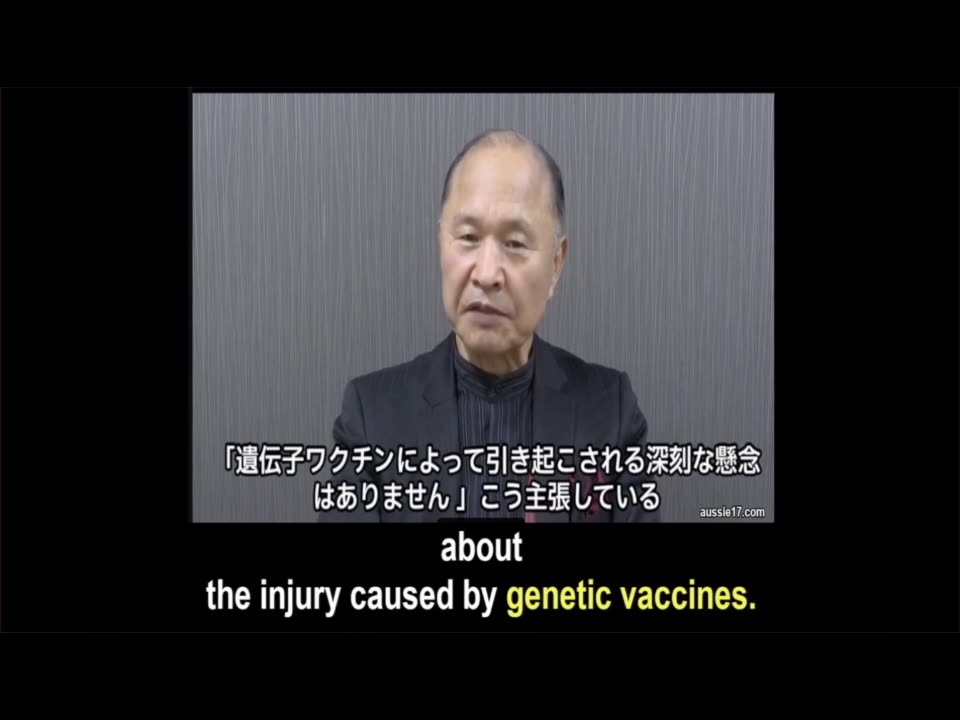
In an attempt to reduce use of pesticides on crops, scientists are exploring the concept of “vaccinating” food plants to prevent them from being infected with viruses and other pathogens. Experiments are utilizing an external application of double-stranded RNA (dsRNA), a naturally occurring product that is found in most organisms, to make plants resistant to certain microbes. Double stranded RNA (dsRNA) plays a key role in activating the immune systems of plants and other organisms.
Acknowledging that pesticides have caused harm to the environment and human health, researchers from the University of Helsinki in Finland and French National Centre for Scientific Research report they have discovered a way to “vaccinate” the plants themselves to prevent infection.1 The “vaccine” is sprayed on or applied directly to leaves of the plant and triggers a reaction known as “RNA interference, which is an innate defense mechanism of plants, animals and other eukaryotic organisms against pathogens.”2
The authors explained that trials using dsRNA to trigger RNA interference have been limited because producing the necessary dsRNA in the lab has been too expensive and inefficient to apply the technology in the real world. After achieving efficient and reproducible methods of producing dsRNA, the researchers developed a production system that allowed them to study the effects of applying the plant “vaccine” and exposing the test plants to an infectious agent. Their goal is to produce “an efficient, highly flexible, nontransgenic and environmentally friendly approach for protecting crops against viruses and other pathogens.”3
Citing data from Kew Royal Botanical Gardens, the authors estimated the cost of invasive pests and pathogens is $540 billion per year. Adding the cost of poisoning the environment and human health with traditional pesticides, the authors argued that using an external application of the dsRNA has benefits. For example, they said, the dsRNA is designed to target a specific pathogen, so it is not a broad-spectrum killer. They believe that mutations leading to resistance are unlikely, for either the agent or the pathogen and that, unlike chemical pesticides, dsRNAs are naturally biodegradable and not expected to “produce any substantially novel residues in food products.”4
However, there are outstanding questions about whether dsRNA will stress the plants in unexpected ways or affect beneficial insects in the environment. Due to the fact that the experimental technology is new, existing government regulations may not apply to licensing the product. According to co-researcher Dr. Minna Poranen, “It’s difficult to predict when the vaccine will be made available because no relevant legislation exists yet.”5
Warnings Sounded by Environmental Protection Advocates
Despite promotion of the potential benefits of the experimental technology by those developing it, others are questioning whether using dsRNA technology to “vaccinate” food plants is risk-free. In a May 23, 2018 article, Dr. Joe Mercola warned that, “While we certainly need to eliminate agrochemicals from food production, RNAi technology is risky business and could produce any number of unforeseen consequences.6
Dr. Mercola cited a letter by Regeneration International founding member Judith Schwartz posted as a comment to the editors of Yale Environmental 360 in response to its April 18, 2018 article, “Can ‘Vaccines’ for Crops Help Cut Pesticide Use and Improve Yields?”.7
Ms. Schwartz questioned wrote, in part:
As a journalist covering land management, I am extremely disappointed in the lack of skepticism demonstrated in this reporting. Any distinction between this and ‘chemical pesticides,’ or for that matter, ‘genetic engineering,’ is merely semantic; if gene editing is not considered genetic engineering that’s only because the companies say so. As we do not know if this technology is safe, how can we be sure that non-targeted genes are not deactivated?
This could dangerously impact insect, plant and/or mammal species and ecological stabilities … There are a growing number of farmers who are working with nature by means of no-till, cover-cropping and other ecological practices, who are finding that the best means of managing problem insects is biodiversity: the other insects that prey on them.
Such farmers have been able to grow healthy crops while markedly reducing and often eliminating herbicides and pesticides. Independent research has shown that pesticide-treated croplands often have far more pests and impacts than untreated cropland. Aren’t problem pests a symptom of an out-of-balance ecology? Could not this RNAi experiment throw the ecology even further out of balance?
How would this address the underlying problem, rather than merely boost the sale of pesticides? … [W]e can already produce enough food to feed 10 billion people; the challenge is in distribution, nutrient density and affordability. Nor is this the job of industrial agriculture. More than 70 percent of the world’s food is grown by small-holder farmers in the developing world …
Given the limited research on RNAi technology that is not funded by entities that would benefit from its use, isn’t more critical analysis required? I would encourage your editorial staff to run an objective piece that goes into more details on the implications of RNAi technology and considers pest management alternatives.
Only time will tell whether plant “vaccines” will turn out to be a safer way to control the effects of microbes that destroy crop yields, or whether the experimental technology will prove to cause further damage to an environment already compromised by pesticides.
References:
1 Niehl A, et al. Synthetic Biology Approach for Plant Protection Using dsRNA.
2 A Vaccine For Edible Plants? A New Plant Protection Method on the Horizon. ScienceDaily Apr. 5, 2018.
3 See Footnote 1.
4 Ibid.
5 See Footnote 2.
6 Mercola J. Latest Update on Toxicity of Popular Weed Killer and Proposed Rule for Labeling of GMOs. Mercola Newsletter May 23, 2018.
7 Coniff R. Can ‘Vaccines’ for Crops Help Cut Pesticide Use and Boost Yields? Yale Environmental 360 Apr. 19, 2018.














5 Responses
Will there come time farmers and We The Poor People have no access to natural food & seeds?
Genetic and other modifications SHOULD be carefully tested over many years. But instead, the companies pay CONgressjacks & Executive Branch alphabet Agencies to fast track.
I guess they figure they’ll be retired fat & happy, by the time YOU get CANCER AND/OR DIE.
CANCER IS FAST-TRACK.
While it is useful to report on these possibilities, Mercils should be careful to not make people fearful of a scientific process in which questions are asked and answers sought. In throry the idea of a vaccine is attractive. Before it’s found to be effective and safe, a great deal of work needs to be done. Mercola should applaud the effort and track the development. Whistles can be blown. The
That is not how things in the real world actually work. First off -vaccines are basically a fraud and are ineffective and unsafe in humans. Real science shows this.
Secondly – we in the world in general never get to make a choice here. The rich parasites running a company make the decision, buy the political whores who then allow “tests”, the results NEVER have any of the negative consequences mentioned, and the new technology is totally and immediately embedded into our life and planet before you can shake a stick at it.
The rich will get richer, the poor will pay the consequences, the results are definitely NOT anything which can EVER guarantee safety.
Hell, the GMOrons killed over 120 Americans with the first GMO product in the US in 1989, and the “approved” (by Moronsanto employee Michael Taylor – given approval power in the FDA) GMO corns caused liver and kidney toxicity – but apparently that now defines “safe” – and so MT approved the crap in violation of food safety laws – the 1958 FDCA to be specific.
There was a recent GMO soil bacteria which LITERALLY came within about 3 weeks (when they would have released it throughout the world) of killing the entire planet.
Complete insanity. We are playing genetic roulette with the planet.
To a sane and truly intelligent person it would be obvious that if they are messing with an existing system that plants use in order to protect themselves from diseases and pathogens – THEN ONE COULD USE NATURAL METHODS WHICH FACILITATE THAT PROCESS without messing with nature again.
Duh.
These processes are greatly enhanced by not tilling. By not using any biocides, by doing what one can to increase soil probiotic diversity and soil life percentage – which can be added to with aerobic composting.
But the scientists always look for a way to do things that gives them a job. Corporations don’t make money when they realize that nature will ALWAYS be more adjustable, efficient, ecologically intelligent, and ultimately cost-effective than using technology.